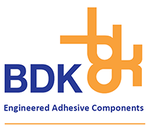Prototyping is one of the most important steps in the development process and tests the functionality of a device before it is manufactured. It consists of creating and rigorously assessing multiple iterations of a device and how they will interact with other devices or the human body. Prototyping is extremely important for medical devices as it can have an impact on patient outcomes and quality of care. Here’s how and why.
The Process of Prototyping for Medical Devices
First, let’s look at an overview of how prototyping works. There is not a one-size-fits-all process for prototyping medical devices due to the variation in design and functionality, as well as different company processes.
At BDK, prototyping is the very first stage in the development of the device. To test the functionality of the device, we produce low cost samples which are often made from flatbed or plotter cut samples. Depending on the complexity, these can be assembled manually or semi-automated.
Once materials and shapes have been selected, the next phase of prototyping consists of ordering tooling and making initial trials on our production equipment. From here, we can make other iterations to confirm the design fit and function.
Once the design freeze stage has been reached, we look at validating the process so that the device is ready for high volume production. Here, we follow IQ/OQ/PQ where different material and machine parameters are tested.
Why is Prototyping Important for Medical Devices?
As mentioned above, there are many reasons why prototyping is important for medical devices.
Encourages Innovation
At BDK, innovation is at our core and we believe that prototyping encourages this even further. Prototyping transforms abstract concepts into tangible models, providing stakeholders with a physical representation of the proposed medical device and the opportunity to find innovative ways to test and improve it.
Safeguards Against Design Errors
An idea may initially look and sound promising, but prototyping is an effective way of seeing if the idea is feasible. By recognising that the proposed medical device is not suitable for the market during the early stages can save time and money as well as inspire alternative innovative solutions for the future too. If the idea is feasible but cannot be scaled for large volume production, prototyping with BDK can help identify design changes that can overcome these issues.
Identify & Fix Problems Promptly
During the prototyping process, you are able to proactively identify any problems that may impact the manufacturing process so they can be fixed. Finding any issues later on down the line can be very difficult to rectify, especially after it’s gone to market.
Quicker Development Time
Following on from above, although it may sound time-intensive, getting the prototype right as soon as possible can avoid timely delays. Fixing problems early on in the product development can reduce rework, save money and streamline the path to market.
Ensures Regulatory Compliance
One of the most important reasons for prototyping medical devices is to ensure they will be approved by global regulatory agencies such as the FDA and CE. There are many strict rules and guidelines for regulatory compliance and this process enables medical device manufacturers to have peace of mind.
Full Service Project Management from BDK
Prototyping is more than a developmental stage—it’s a critical strategy for ensuring medical device safety, efficacy, and innovation.
At BDK, we recognise its important and offer a full service project management as a medical device manufacturer. From concept to prototyping, trials to launch and high volume production, our team are capable, knowledgeable and reliable. Contact us today to get your project started.
